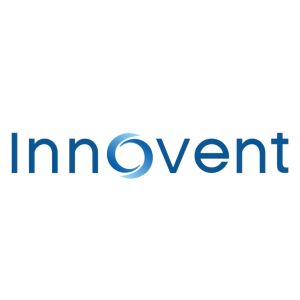Innovent Announces the Preclinical Results of IBI363 (PD-1/IL-2 Bispecific Antibody Fusion Protein) were Published in Nature Cancer
ROCKVILLIE, Md. and
Interleukin 2 (Interleukin-2, IL-2) is the first cytokine to be discovered and identified as playing a pivotal role in T-cell growth and expansion. Aldesleukin (IL-2) was approved by
- In comparison with "not-α" IL-2, α-biased IL-2 which retains intact IL-2Rα (CD25) binding showed superior anti-tumor efficacy and lower toxicity in multiple murine tumor models.
- In tumor, α-biased IL-2 can more effectively activate tumor-specific T cells (TSTs) because TSTs highly express CD25, which increases their interactions with α-biased IL-2. In contrast, "not-α" IL-2 is prone to expand CD25 negative bystander T cells, and this limits its anti-tumor efficacy. In the periphery, "not-α" IL-2 can significantly expand peripheral T cells, while α-biased IL2 preferentially expand peripheral Treg to restrain systemic toxicity.
- Intratumoral CD25+PD-1+CD8+ T cells exert more potent polyfunctionalities, including secreting effector molecules such as IL-2, IFN-γ, TNF-α and GZMB, than CD25-PD-1+CD8+ and CD25-PD-1+CD8- T cells. CD25-blocking or IL-2-neutralizing antibodies can limit the activation of TSTs and negatively affect the anti-tumor effects of PD-1 blockade.
The corresponding author, Dr. Kaijie He of Innovent Biologics stated, "We are very pleased that the results of this study are published and highlighted in the current issue of Nature Cancer. IL-2 is one of the most important cytokines in immune-oncology, but the mechanism of action underlying its potent antitumor activity is still elusive. In this study, we propose a previously underappreciated function of CD25 in regulating IL-2 autocrine signaling in TST cells to exert their antitumor functions, and challenge the "IL-2 dogma" that has dominated the whole field in the past decades, suggesting a new approach to designing safer and more effective IL-2 drugs. At the same time, this study also proposes to use "IL-2 signature" as a novel biomarker to predict the clinical benefits of anti-PD-1 antibody in cancer patients, and provides scientific rationales of combining IL-2 and PD-1 antibody in individuals who do not respond to PD-1 blockade. Based on the findings of this study, we designed IBI363, a PD-1/IL-2 bispecific antibody fusion protein, to expand and re-invigorate the TST cells in the cold tumors and overcome resistance to PD-1 antibodies in certain populations. At present, IBI363 is in clinical Phase 1 studies to evaluate the safety and preliminary antitumor efficacy in cancer patients who have failed or are not suitable for anti-PD-1 treatment. "
IBI363 is a potential First-in-Class candidate drug independently developed by Innovent. Its active ingredient is PD-1/IL-2 bispecific antibody fusion protein. The IL-2 arm of IBI363 has been engineered to maximize efficacy and reduce toxicity, whereas the PD-1 binding arm achieves PD-1 blockade and selective IL-2 delivery. Therefore, IBI363 has both functions of simultaneously blocking PD-1/PD-L1 pathway and activating IL-2 pathway, allowing more precise and efficient targeting and activation of tumor specific T cells. IBI363 not only showed promising anti-tumor activity in a variety of tumor-bearing pharmacological models, but also exhibited prominent antitumor efficacy in PD-1 resistant and metastatic models; meanwhile, IBI363 demonstrated a good safety profile in preclinical models. Currently, Phase 1 studies of IBI363 are conducted in
About Innovent
Inspired by the spirit of "Start with Integrity, Succeed through Action," Innovent's mission is to develop, manufacture and commercialize high-quality biopharmaceutical products that are affordable to ordinary people. Established in 2011, Innovent is committed to developing, manufacturing and commercializing high-quality innovative medicines for the treatment of cancer, autoimmune disease, metabolic disorder and other major diseases. On October 31, 2018, Innovent was listed on the Main Board of the Stock Exchange of Hong Kong Limited with the stock code: 01801.HK.
Since its inception, Innovent has developed a fully integrated multi-functional platform which includes R&D, CMC (Chemistry, Manufacturing, and Controls), clinical development and commercialization capabilities. Leveraging the platform, the company has built a robust pipeline of 35 valuable assets in the fields of cancer, metabolic disorder, autoimmune disease and other major therapeutic areas, with 9 approved products on the market. These include: TYVYT® (sintilimab injection), BYVASDA® (bevacizumab injection), SULINNO® (adalimumab injection), HALPRYZA® (rituximab injection), Pemazyre® (pemigatinib oral inhibitor), olverembatinib(BCR ABL TKI), Cyramza® (ramucirumab), Retsevmo® (selpercatinib) and FUCASO® (Equecabtagene Autoleucel). Additionally, 2 assets are currently under NMPA NDA review, 6 assets are in Phase III or pivotal clinical trials, and 18 more molecules are in clinical studies.
Innovent has built an international team with advanced talent in high-end biological drug development and commercialization, including many global experts. The company has also entered into strategic collaborations with Eli Lilly, Roche, Sanofi, Adimab, Incyte, MD Anderson Cancer Center and other international partners. Innovent strives to work with many collaborators to help advance
Disclaimer: Innovent does not recommend any off-label usage.
Note:
TYVYT® (sintilimab injection) is not an approved product in
BYVASDA® (bevacizumab biosimilar injection), SULINNO®, and HALPRYZA® (rituximab biosimilar injection) are not approved products in
TYVYT® (sintilimab injection, Innovent)
BYVASDA® (bevacizumab biosimilar injection, Innovent)
HALPRYZA® (rituximab biosimilar injection, Innovent)
SULINNO® (adalimumab biosimilar injection, Innovent)
Pemazyre® (pemigatinib oral inhibitor, Incyte Corporation). Pemazyre® was discovered by Incyte Corporation and licensed to Innovent for development and commercialization in Mainland China,
CYRAMZA® (ramucirumab, Eli Lilly). Cyramza® was discovered by Eli Lilly and licensed to Innovent for commercialization in Mainland China.
Retsevmo® (selpercatinib, Eli Lilly). Retsevmo® was discovered by Eli Lilly and licensed to Innovent for commercialization in Mainland China.
Forward-Looking Statements
This news release may contain certain forward-looking statements that are, by their nature, subject to significant risks and uncertainties. The words "anticipate", "believe", "estimate", "expect", "intend" and similar expressions, as they relate to Innovent, are intended to identify certain of such forward-looking statements. Innovent does not intend to update these forward-looking statements regularly.
These forward-looking statements are based on the existing beliefs, assumptions, expectations, estimates, projections and understandings of the management of Innovent with respect to future events at the time these statements are made. These statements are not a guarantee of future developments and are subject to risks, uncertainties and other factors, some of which are beyond Innovent's control and are difficult to predict. Consequently, actual results may differ materially from information contained in the forward-looking statements as a result of future changes or developments in our business, Innovent's competitive environment and political, economic, legal and social conditions.
![]() View original content:https://www.prnewswire.com/news-releases/innovent-announces-the-preclinical-results-of-ibi363-pd-1il-2-bispecific-antibody-fusion-protein-were-published-in-nature-cancer-301895216.html
View original content:https://www.prnewswire.com/news-releases/innovent-announces-the-preclinical-results-of-ibi363-pd-1il-2-bispecific-antibody-fusion-protein-were-published-in-nature-cancer-301895216.html
SOURCE Innovent Biologics







